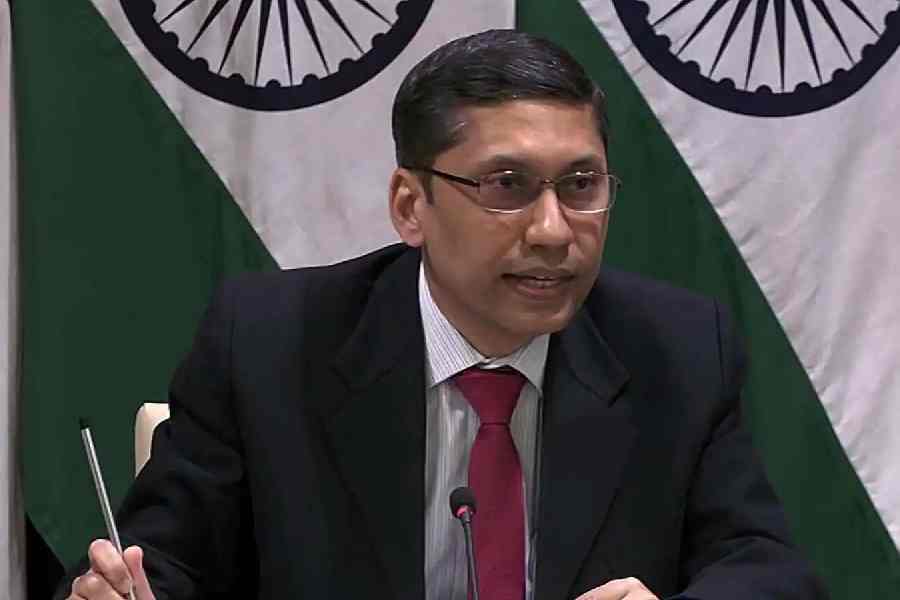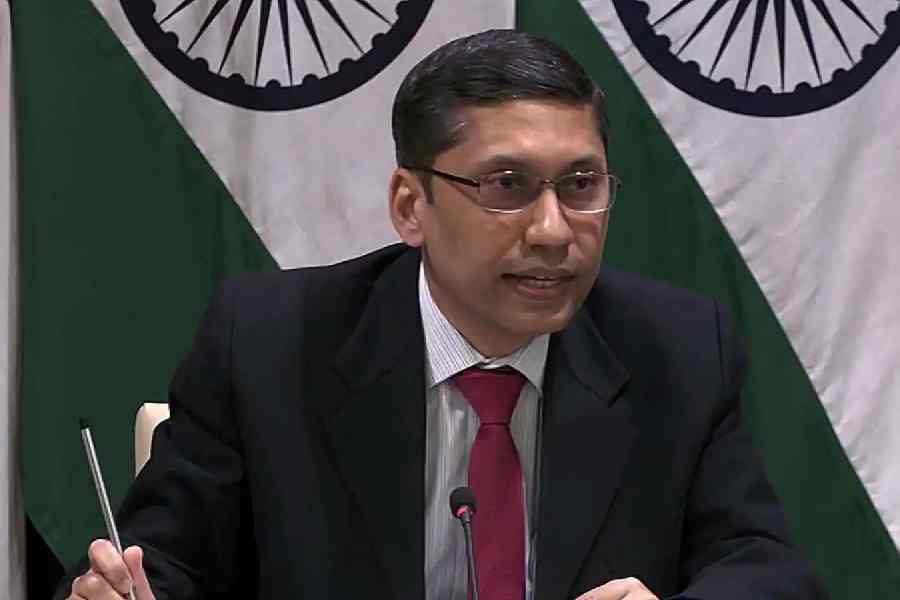India on Thursday said it was concerned by the US accusation that an Indian government official based in New Delhi had tried to get an American citizen assassinated in New York City, and stressed this was not "government policy".
The US department of justice has in a court indictment made public on Wednesday said an "identified" Indian government employee had hired alleged drug trafficker and gunrunner Nikhil Gupta to execute the assassination. In return, Gupta was promised that a case against him in Gujarat had "been taken care of" and that "nobody will ever bother you again".
Facing questions over the US indictment, external affairs ministry spokesperson Arindam Bagchi said: "This is a matter of concern. We have said, and let me reiterate, that this is also contrary to government policy."
He did not deny the allegation.
The US has said the Indian agent has "variously described being employed by the Indian government as a ' Senior Field Officer' with responsibilities in 'Security Management' and 'Intelligence'", and added that he had "referenced previously serving in India's Central Reserve Police Force, and receiving 'officer training' in 'battle craft' and weapons".
The assassination target has not been named in the indictment but was later identified by US authorities as Gurpatwant Singh Pannun, a Khalistan separatist.
The charges come about two months after Canada said there were "credible" allegations linking Indian agents to the murder of a Canadian citizen and Khalistan separatist, Hardeep Singh Nijjar, in a Vancouver suburb in June. India has rejected that allegation.
Canadian Prime Minister Justin Trudeau sounded vindicated on Wednesday, telling journalists in Ottawa: "The news coming out of the United States further underscores what we've been talking about from the very beginning, which is that India needs to take this seriously."
Trudeau emphasised: "This is not something that anyone can take lightly. Our responsibility is to keep Canadians safe, and that’s what we’re going to continue to do."
The Manhattan indictment mentions the Nijjar killing in June and suggests a link between that and the US assassination plot.
Spokesperson Bagchi referred to the establishment of a high-level inquiry committee to look into the US allegations, but refused to say whether it would be extended to include the allegations made by the Canadian Prime Minister. He did not reveal which agency was conducting the probe. Questions are being asked about how high in the government the investigation can probe.
Asked about Canada, Bagchi said: “They have consistently given space to anti-India extremists and violence. This is at the heart of the issue. Our diplomatic representatives have borne the brunt of this. So we expect the Government of Canada to live up to their obligations under the Vienna Convention on Diplomatic Relations. We have also seen interference in our internal affairs. This is obviously unacceptable.”
In a separate engagement with reporters, Canadian foreign minister Melanie Joly urged India to cooperate with the Canadian investigation for it to proceed, maintaining that she has been in regular touch with her Indian counterpart S. Jaishankar on this matter. She once again described as “unacceptable” India’s decision to withdraw diplomatic immunity to 41 Canadian diplomats based in India last month and articulated the hope that they will be allowed to return.
Stating that Canada stands by the allegations made by Trudeau in late September that Indian agents are linked to the killing of a Canadian citizen on Canadian soil, she said she had had numerous conversations with US secretary of state Anthony Blinken on this.
Unlike with Trudeau’s allegations, the Indian political class has been silent on the US indictment. Trudeau was criticised by the BJP, Congress and the Akali Dal.
The Chair of the Senate foreign relations committee, Ben Cardin, saw the indictment as part of a growing trend of governments trying to silence dissenters overseas and has called a hearing next week on “global transnational repression and how the United States government can more effectively counter this pernicious threat”.
In a statement on the indictment, he said: “We are witnessing an alarming rise in transnational repression globally, where governments are dispatching assassins and kidnappers or using international criminal networks to abduct, harass, intimidate and harm dissidents, journalists and other individuals – far beyond their borders. The disturbing news of a foiled assassination plot against a US citizen involving Indian government officials further underscores the importance of shedding light on efforts by governments to silence dissenters living abroad.”











